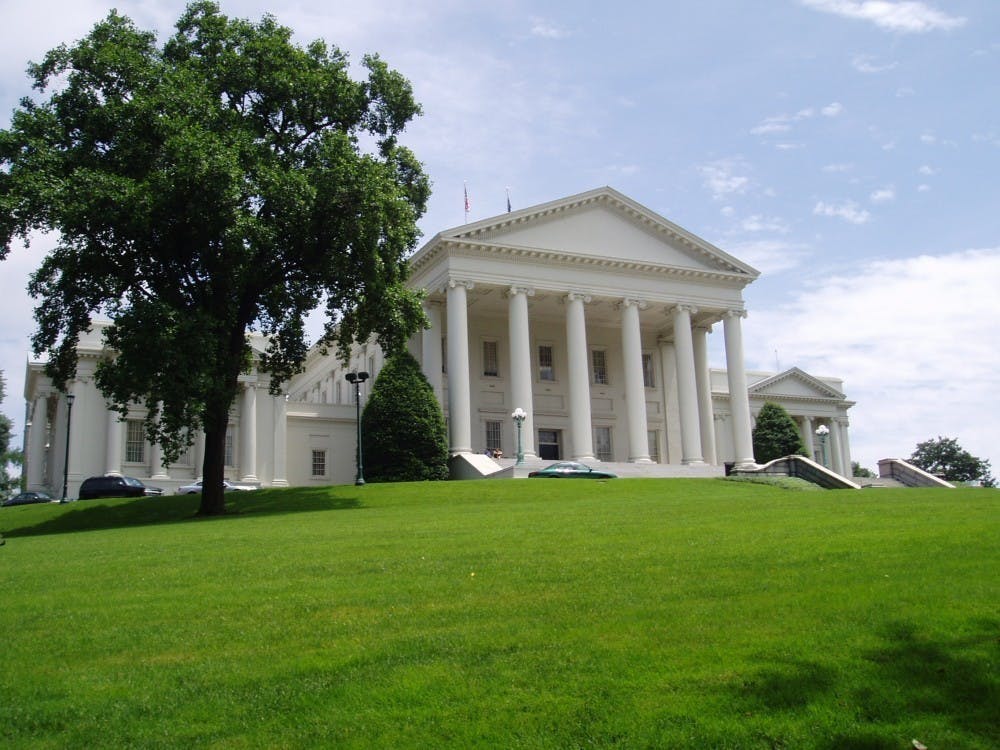Last week’s general election was historic as Democrats swept state and local races across the Commonwealth, regaining control of the General Assembly for the first time in almost 20 years. Now entrusted with a clear mandate, these newly elected policymakers are tasked with upholding the very campaign promises that paved the way for their victories. Given that students represent an increasingly important constituency across the Commonwealth, elected officials must focus on the issues that disproportionately affect them.
Most significant among these is the cost of higher education in Virginia. This problem has become so serious that in 2018, the General Assembly enacted a one-year tuition freeze impacting all of Virginia’s public colleges and universities, temporarily halting several proposed tuition hikes, including at the University. While this measure was certainly a step in the right direction and one that will hopefully be repeated, it fails to address two key issues at hand — decreased funding for public colleges and universities and a general lack of oversight by lawmakers.
Since the 1990s, Virginia has followed the national trend of slashing public assistance for institutions of higher learning, effectively shifting the burden of funding these schools almost entirely onto students and their families. For the 2019-2020 academic year, state appropriations accounted for only 8.8 percent of the University’s total operating sources. Correspondingly, lawmakers have also shown extraordinary deference to school administrators in regards to how these funds are spent. Because of this, in-state tuition has risen by 79 percent over the past decade, and today Virginia ranks among the top ten states for the highest average cost of attendance at its four-year public colleges and universities.
As newly-elected lawmakers head into next January’s session, they must redefine the Commonwealth’s present relationship with its public colleges and universities to ensure they meet the needs of students in the 21st century. One way to do so is to appropriate more money to the University, which is especially necessary considering that the Board of Visitors’ proposed to raise tuition and fees during the 2019-2020 academic year.
Aside from lowering the cost of higher education, another area of concern must be meeting the present demand for affordable housing. This crisis has played out in college towns and communities across the Commonwealth, disproportionately affecting low-income residents and students alike. The City of Charlottesville alone is currently in need of an additional 3,000 housing units by 2040 with the surrounding region requiring almost 11,000. While the Thomas Jefferson Planning District Commission, which oversees development in the Charlottesville area, recently commissioned a $100,000 study on the topic, there still remains a significant amount of work. With housing being one of the largest costs for students at the University, it is imperative that policy makers who are looking to make college more affordable also address the present housing shortage. Among these policies include local officials loosening zoning and land-use restrictions, as well as the General Assembly granting more localities the ability to enact inclusive zoning ordinances.
Finally, in light of the tragic events that have unfolded on college campuses across the Commonwealth over the past two decades — most notably the Virginia Tech Massacre in 2007 and the Unite the Right Rally in 2017 — newly-elected state and local officials must finally take the necessary steps to keep students safe. The Commonwealth’s gun laws have long been woefully inadequate and next January’s legislative session provides an excellent opportunity for lawmakers to finally correct many of the missteps taken in the aftermath of the Virginia Tech shooting.
In fact, Virginia is 1 of 12 states that encountered more than five shootings on or near college campuses during a 14-year period. Together, these 12 states accounted for 64 percent of all college campus shootings during that time. Given these facts and the potential for future white supremacist rallies in Charlottesville, which may once again include armed participants, the General Assembly must pursue more stringent gun regulations such as reinstating the Commonwealth’s “One-Gun-A-Month” Law, restricting high-capacity magazines and increasing the threshold of requirements during background checks.
While last week’s election was momentous, it is crucial that Virginia’s newly elected policy makers avoid resting on their laurels. Ultimately, it is the responsibility of our representatives to ensure that the needs of students are fully being met while also continuing to enhance the reputation and strength of Virginia’s public colleges and universities.
The Cavalier Daily Editorial Board is composed of the Executive Editor, the Editor-in-Chief, the two Opinion Editors and their Senior Associate. The board can be reached at eb@cavalierdaily.com







